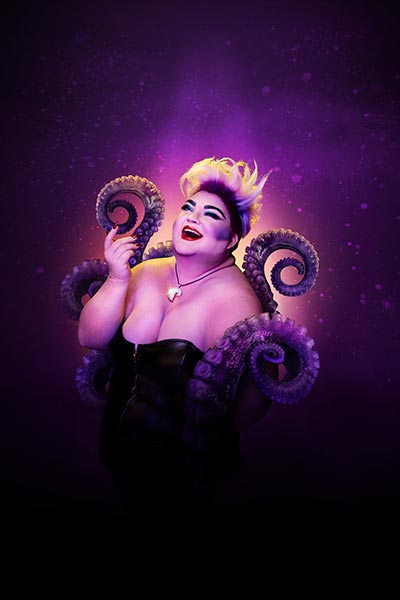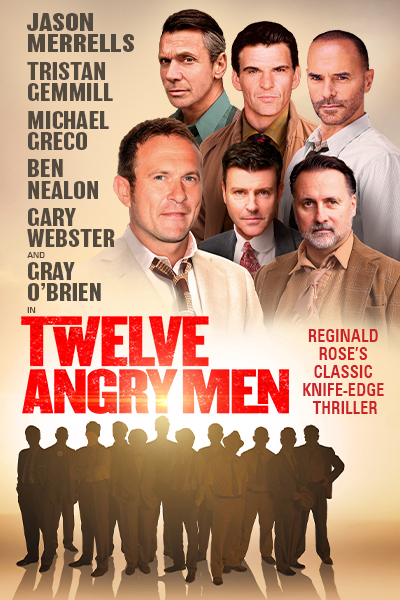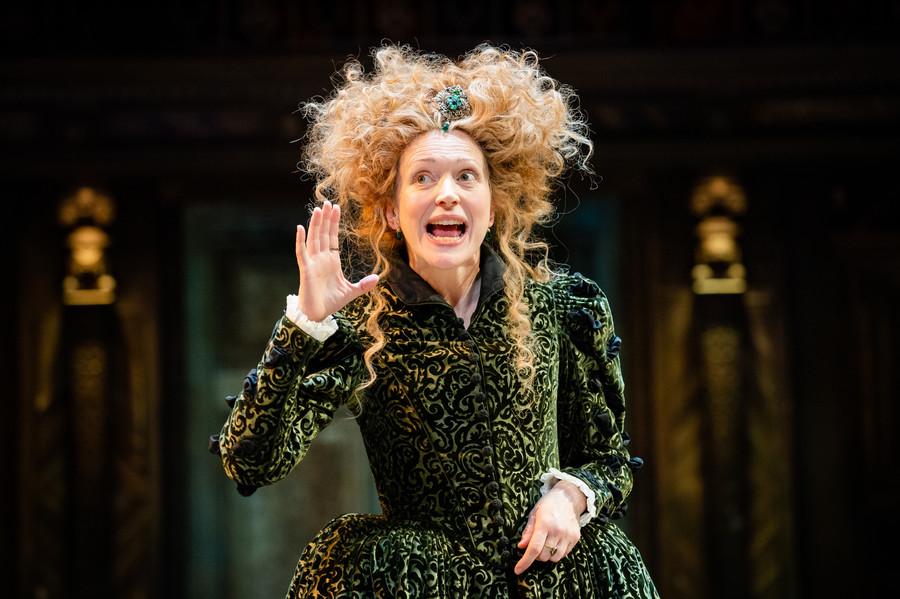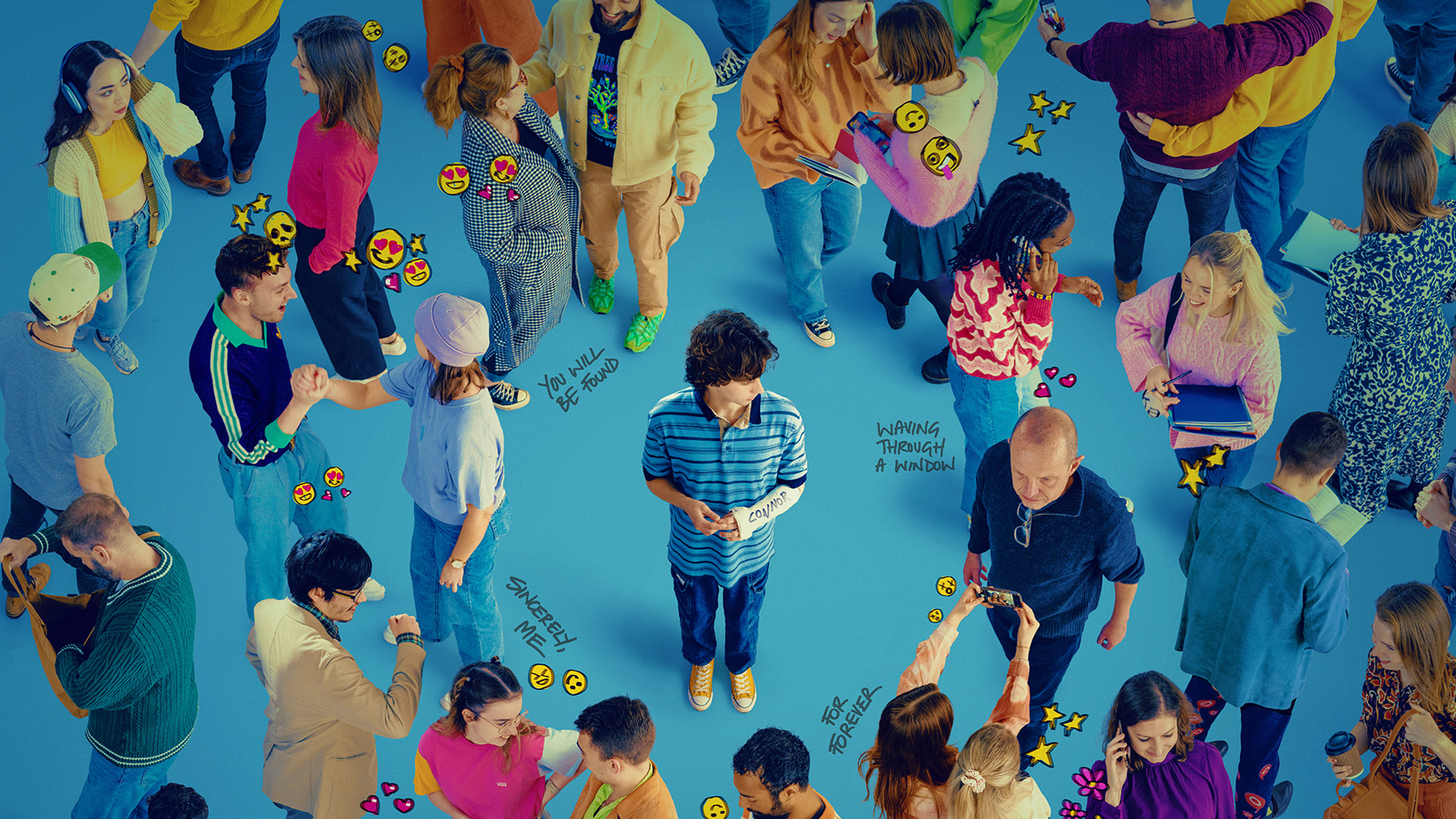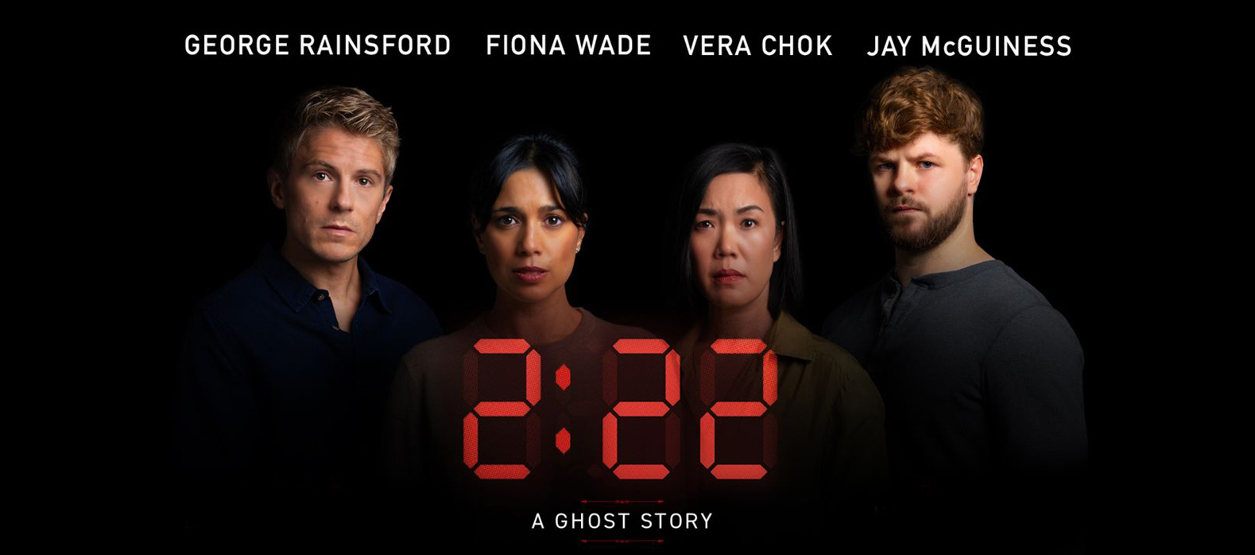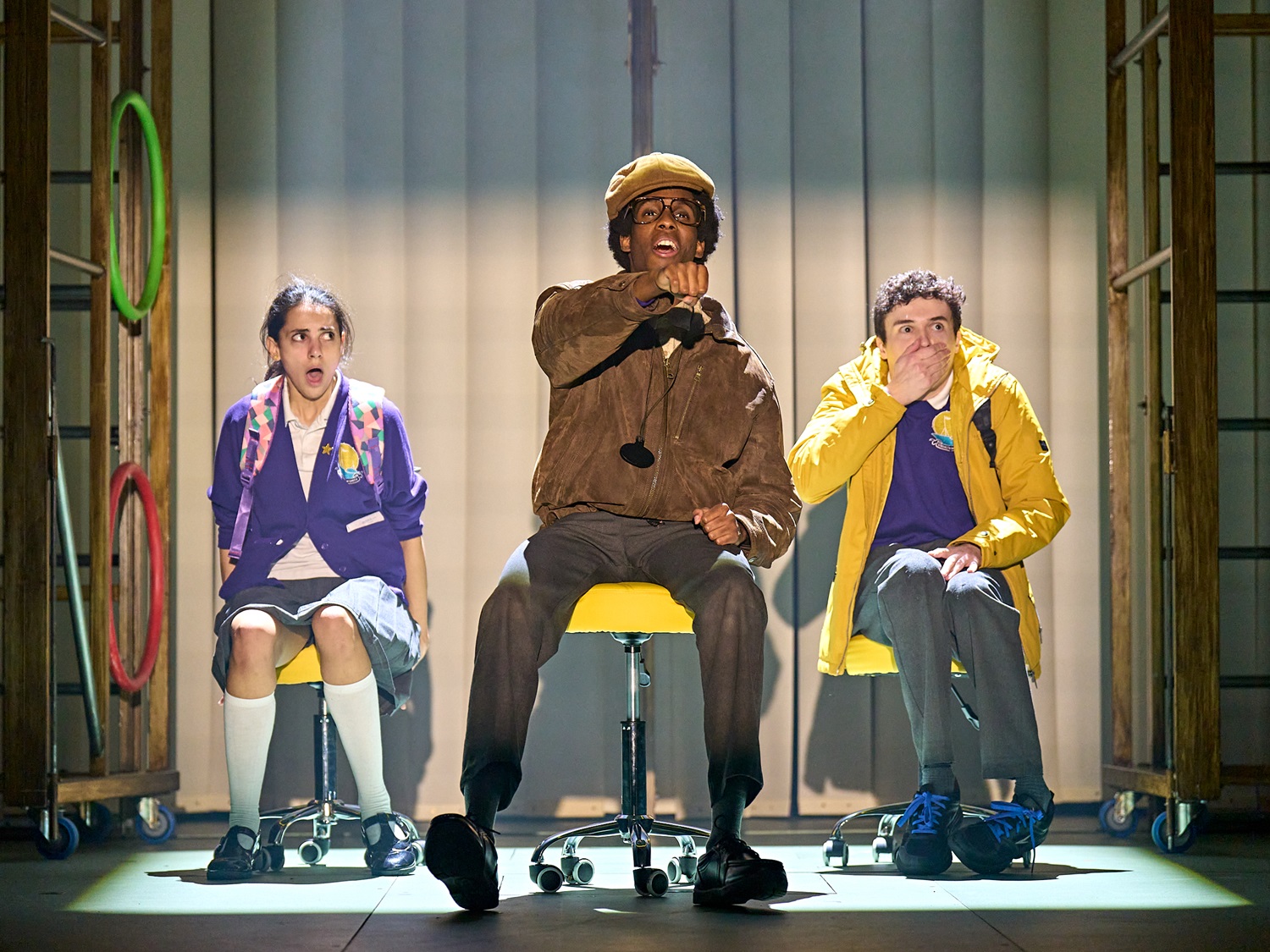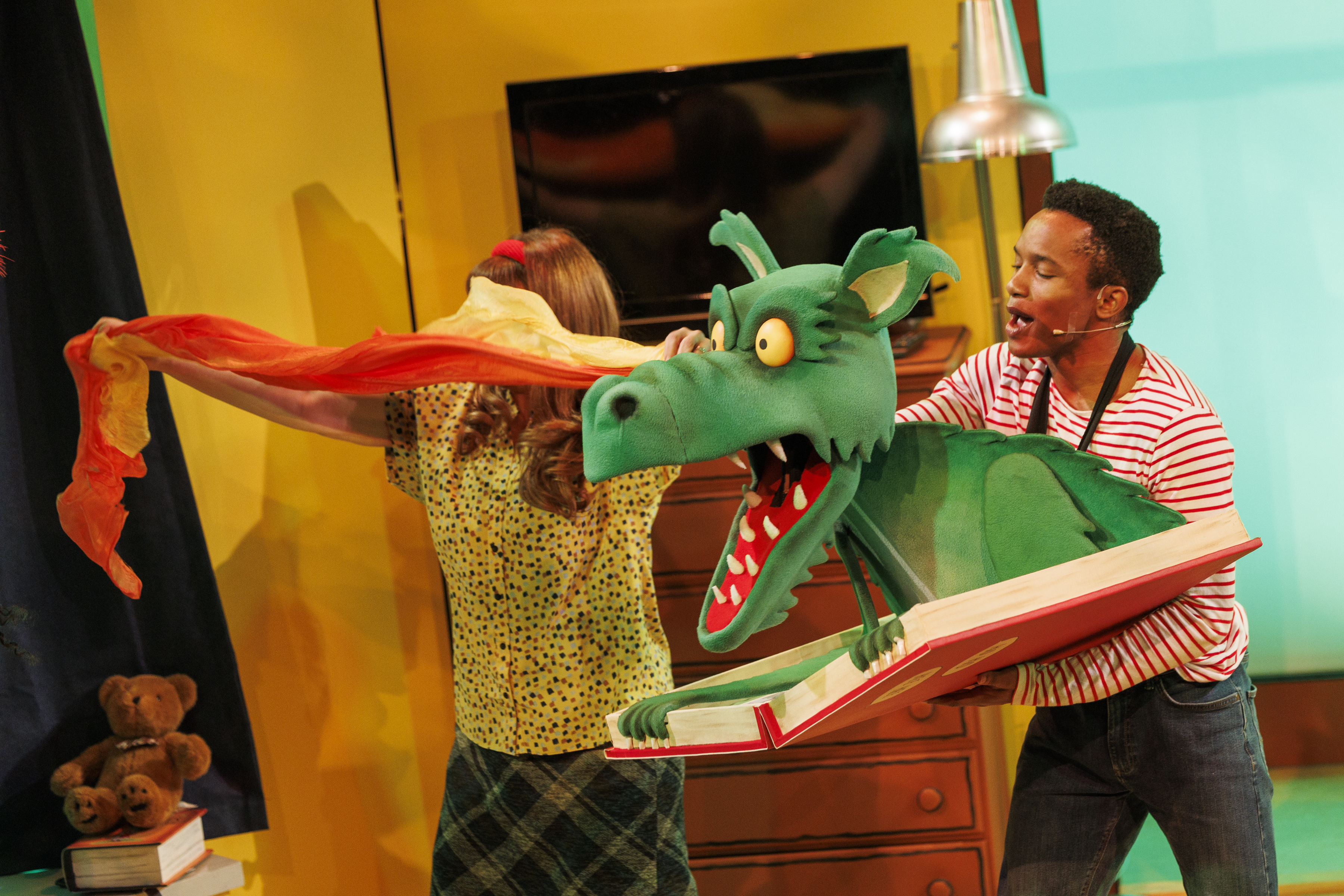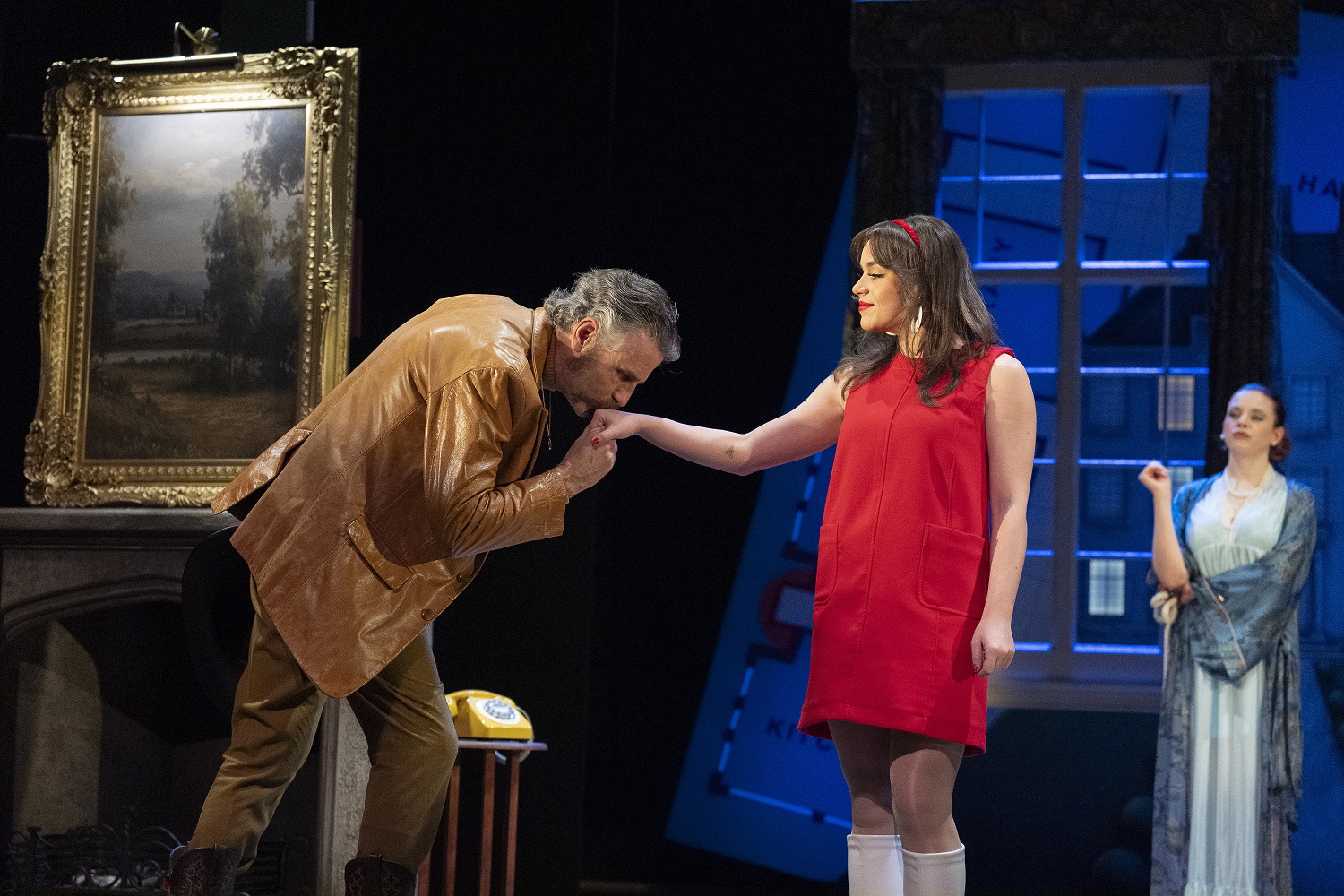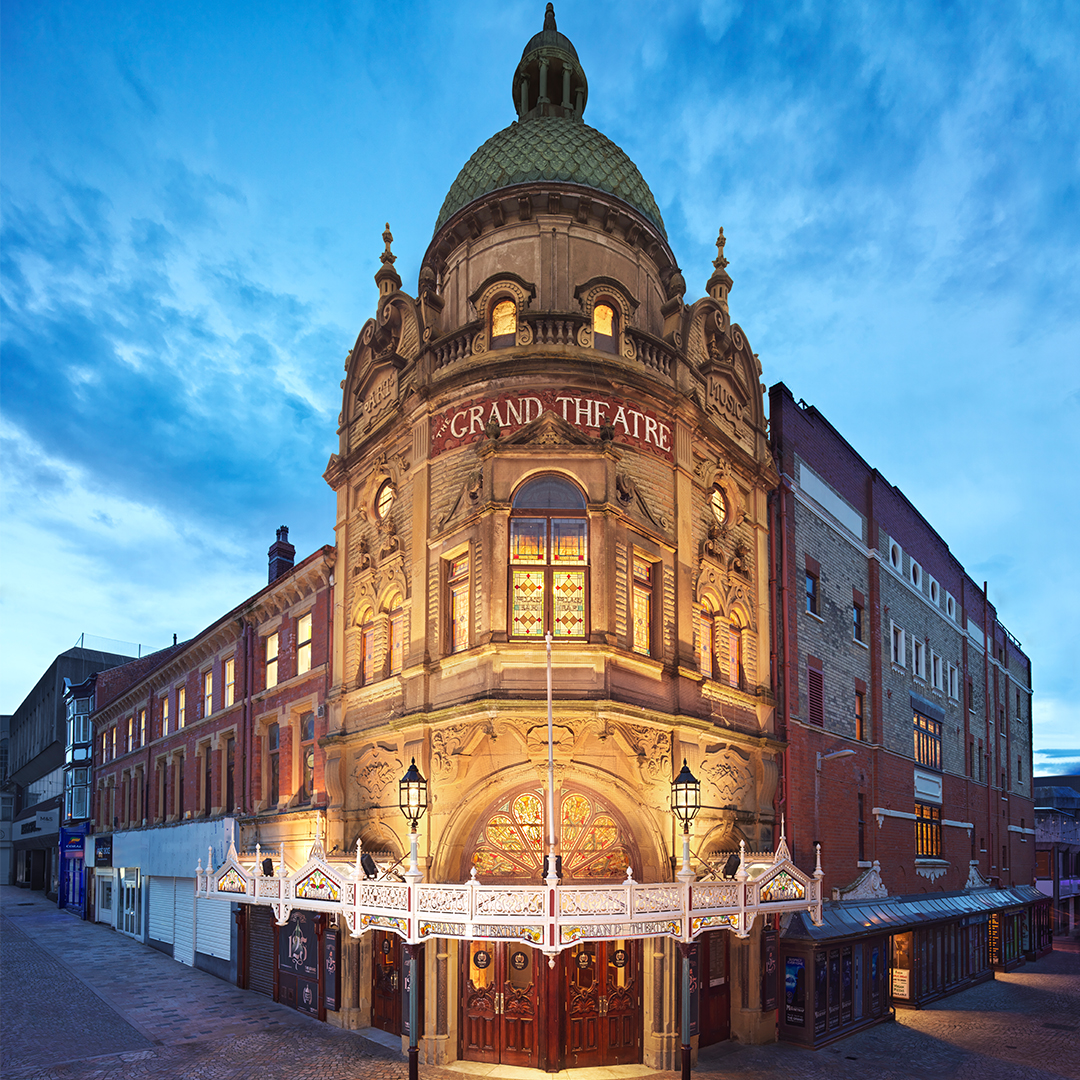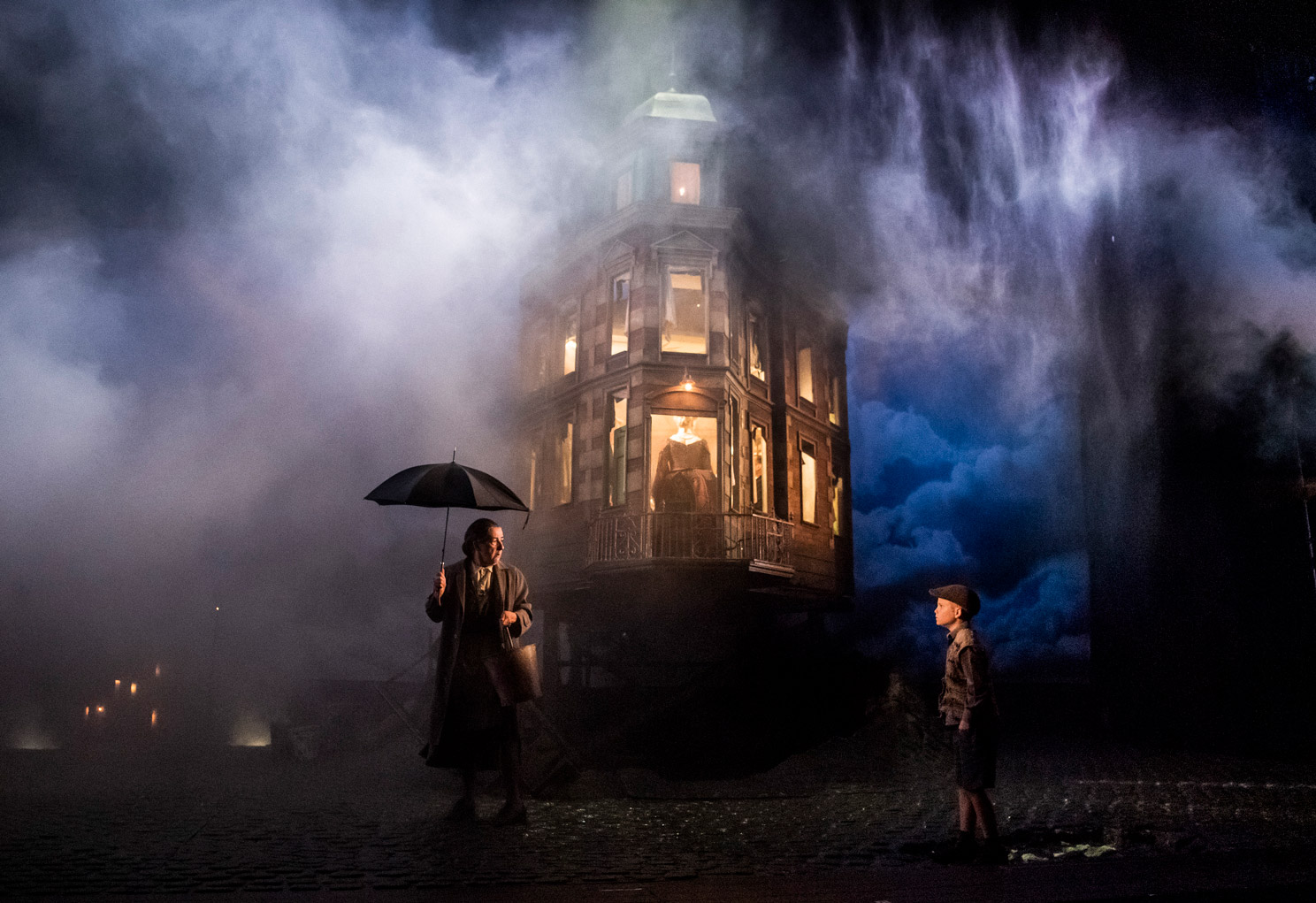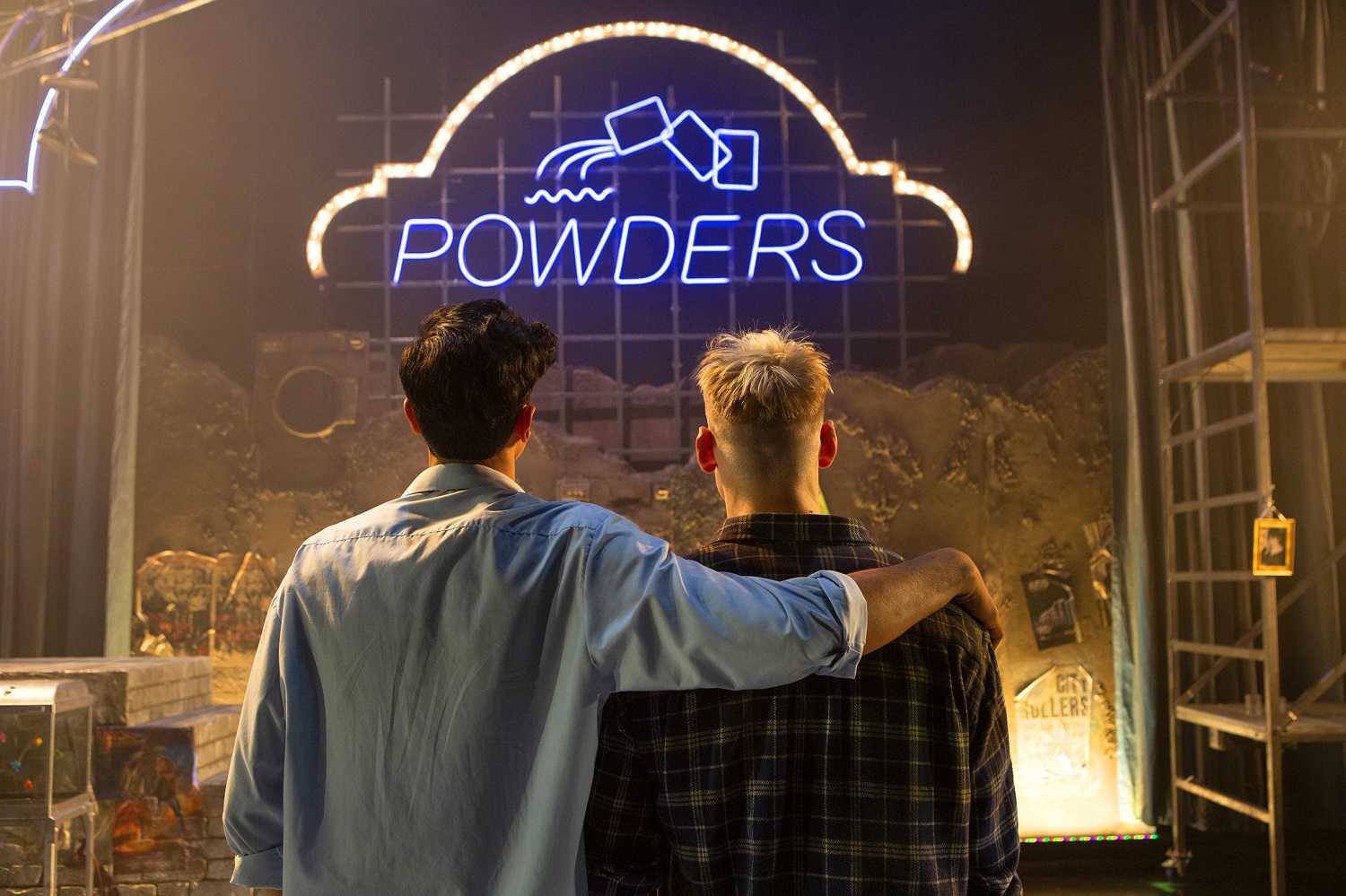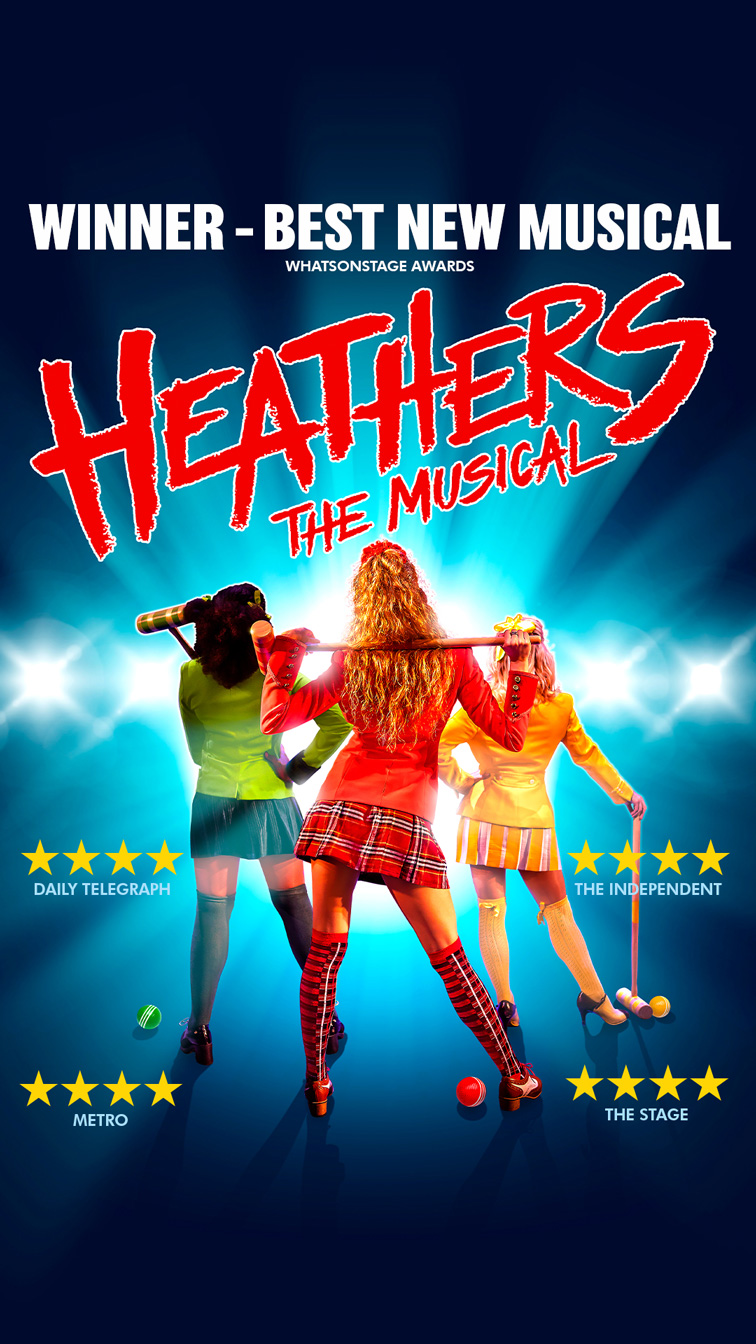
The Ultimate Guide to Comedy
8 min read
Share
What is comedy?
Covering all manner of topics, comedy is still a widely popular genre of entertainment today.
Comedy is the name given to a genre of literature that’s main aim is to entertain audiences, and, quite simply, make them laugh. Incredibly subjective and genius if you get it right, humour is ubiquitous and universal, enjoyed and understood across cultures, whose origins go back as far as 400 BC. From comedy shows to sitcoms, stand-up comedy, romantic comedy and more, it spans generations and, over time has developed many subgenres and notable styles. We explore these below and give insight into the history of comedy, where it all started, and how it has changed over the years.
Explore Blackpool Grands’ upcoming comedy shows and events today.
Where did comedy originate?
Examples of comedy plays can be traced back to 426 BC. Comedy is said to have originated in Ancient Greece, where poet Aristophanes wrote some of the earliest surviving comic dramas. With a hungry crowd and a number of nobles and top politicians in the crowd, his plays challenged authority in a way never seen before. The satirical, fantastical approach his plays took saw mishaps and misdemeanours, often aimed at the politicians and the high and noble attending the play. Unlike the other popular genre at the time, tragedy, comedies focused on the lowly, depicting daily life and daily troubles. Aristophanes celebrated the ordinary, and celebrated ‘normal people’, turning the traditional theatrical approach of focusing on the intellectual and high-born on its head.
By celebrating the normal, his plays, by their nature, attacked the powerful people in the city of Greece. His plays revelled in slandering the noble-born politicians as pompous fools, out of touch with society. The plays had fantastical themes, but running through them was a story relatable to the many, not the few. The result? The high and mighty saw themselves scorned and laughed at on stage, with democracy allowing them to do so. The first comedy plays gave space for the powerful to be mocked in front of the masses through wordplay and wild scenarios that resonated with people. Some of his most famous plays include:
The Frogs (405 BC)
The Thesmophoriazusae (411 BC)
Lysistrata (411 BC)
The Birds (414 BC)
The Wasps (422 BC)
The Knights (428 BC)
Many herald Aristophanes as the Father of Comedy, as traces of his works can be found in the comedy we enjoy today. From slapstick, to satirical, to parody, it all began in Ancient Greece, with a man who not only entertained audiences but resonated with society in a way that hadn’t been seen before.
What are the different types of comedy?
Comedy covers various subgenres, of which many are still enjoyed and performed today. We run through the most well-known types of comedy below:
Slapstick
Slapstick is characterised by physical comedy involving the body. It is seen as rather obvious humour, involving physical movement, slaps, kicks, and falling over. In the early days of television, slapstick comedy was made popular due to its universal appeal and simplistic nature, meaning it could be enjoyed by many and understood even with no dialogue. Early comedians such as Charlie Chaplin and Laurel and Hardy cemented slapstick comedy as a type of comedy still enjoyed in modern society. The style of exaggerated physical humour can be seen in films enjoyed today’ comedians such as Jim Carey are known for their extravagant physical performances, and Mr Bean has universal appeal with its mainly silent sketches. The incredibly successful ‘Play that Goes Wrong’ features elements of slapstick, going further to prove that it is still a much-loved type of comedy enjoyed today.
Parody
A parody is a type of comedy that heavily mimics or pokes fun at others. A parody mocks a specific piece of work by imitation, deliberately mocking a particular writer or genre. Examples of parody in modern culture include Dreamworks Animation Studio’s feature film Shrek, which deliberately mocks the fairy-tale genre of films that are eponymous with Disney. The film has heavy references to the most well-known fairytales throughout and is seen as a satirical interpretation, and was met with great success. Parody has been written for the stage in works as early as Ancient Greece, with Aristophares’ The Clouds, which famously criticised the intellectual fashions of classical Athens.
Another popular parody brought to the stage is the comedy play, The 39 Steps. The play is a parody of the book it is based on, written by Alfred Hitchcock, the comedic reimagining was first performed in 2005 and is still on tour today. The script makes allusions to other works of Alfred Hitchcock, but with only 4 members of the cast, the play is adapted in parody form, meaning its serious spy storyline is subjected to a far more comedic interpretation.
Spoof
A spoof is similar to a parody but differs in the fact that it is a direct re-interpretation of a single piece of work, for example, a particular film or character in a franchise. It deliberately and directly mocks this piece of work, rather than attacking the genre in general. An example of a spoof includes Jonny English, and Austin Powers, both of which are spoof interpretations of the James Bond spy franchise.
Irony
Shakespeare is often heralded as the King of Irony. His clever use of dramatic irony, where the audience is aware of a situation or situation on stage that some characters are not privy to. This lends itself to entertaining outcomes, with the audience feeling more involved than the characters who are actually in the play. The key piece of information that the audience is aware of is often key to the story and key to the events that unfold. Shakespeare used dramatic irony to great effect in many of his tragedies and comedies. This includes Twelfth Night, which sees an unsuspecting Olivia fall in love with Viola, a girl dressing up as her twin brother Sebastian.
Sarcasm
Sarcastic comedy is a type of mockery and ridicule where somebody is being deliberately ironic, often at the expense of another. It is often used to make people feel foolish and will involve a statement that is deliberately the opposite of the situation. For example, if somebody should mess up an audition, a sarcastic comment would be ‘Well that went well!’. It is very often used in comedy, either on stage or on screen. The main goals of sarcasm are to poke fun at the expense of another; context is important, though, as it shouldn’t be confused with irony in general, which rather makes light of a situation rather than an individual.

Buy tickets for Rob Beckett at The Blackpool Grand today
Dark Comedy
Dark comedy is a type of comedy that focuses on making light of particularly dark or negative events or situations. Dark comedy, black humour or black comedy focuses on jokes or funny situations arising from situations that are either taboo or distressing, painful or uncomfortable, making light of them. Common topics explored in dark humour include murder, death, poverty, war or terrorism, or poverty and violence. Dark comedy has been used to great effect in film, TV and on stage. Examples such as the crucifixion scene in Monty Python’s Life of Brian, and some earlier scenes of the Oscar-winning film Parasite are all examples of making light of a distressing situation. (e.g deliberately ruining the lives of many of the characters in order for the Kim family to secure their own jobs).
Wit/ Wordplay
Wit and wordplay are very common in comedy, depending on quick quips and clever comebacks to form the main source of entertainment. Much Ado About Nothing is an example of an early comedy play that relied on clever wordplay. Wordplay includes the clever use of puns. More recently, films and plays such as Ocean’s 11 and Sherlock Holmes are all examples of a script that depends on the continuous back and forth of characters providing the main source of humour.
Farce
Farce is a type of comedy that takes a comical situation to the extreme, with often ridiculous and fantastical events and situations evolving based on the character’s decisions or situations. The situations are often pretty improbable, extravagant situations, often involving violence. Farca is often used to comedic ends; some much-loved farcical comedies in TV and film include Home Alone, The Hangover, It’s Always Sunny in Philadelphia, and Arrested Development. All have examples of ridiculous situations unravelling, focusing on a central place or group of characters.
Want to explore our Comedy resources?
Most Popular Comedy Films in the UK
Most Popular Comedians in the UK
What makes a perfect comedy?
A good comedy is a blend of attributes that, when brought together, create something that amuses, entertains and resonates. Elements of comedy that can help bring it to life include:
- Timing
- Unexpected events
- A flawed plan
- Relatable, hapless characters
Shakespearean Comedy
Comedy has always been a popular genre. Some comedy plays have stood the test of time, and are still enjoyed today. These include some Shakespearean comedies, for which he was well known for. In fact, William Shakespeare helped to shape and cement comedy as art from, similarly depicting fantastical scenarios and storylines that often saw higher members of society mocked and the lowly triumph. With quests of the heart to mistaken identity, his plays were shaped by farcical scenes, wit and wordplay.
You can explore our entire collection of upcoming comedy shows at Blackpool Grand here, or head to our blog for more blog posts on all things comedy.
